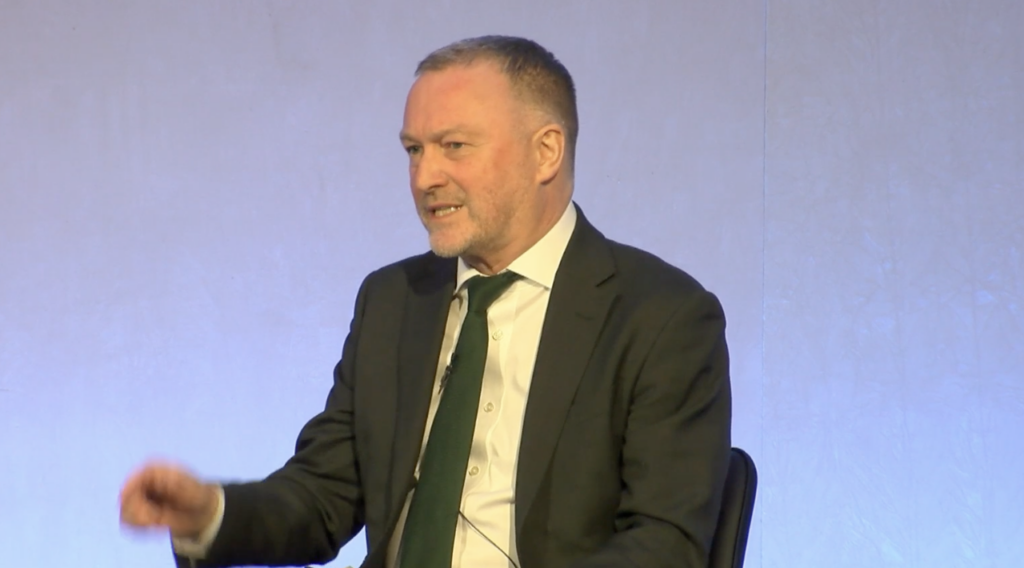Defra secretary Steve Reed has told the NFU conference the government is drawing up plans to seize and crush the vehicles of smugglers who bring illegal meat imports into the UK.
However, there was no mention of the government moving any closer to a funding settlement with the Dover Port Health Authority (DPHA) to enable these vital checks to continue in their current form from the start of April.
During his speech, which was interrupted by protestors and preceded a predictably difficult Q&A session dominated by the government’s inheritance tax reforms, Mr Reed acknowledged that NFU president Tom Bradshaw had repeatedly raised concerns over the risk from illegal meat imports.
Mr Reed said: “More than 92,000kg of illegal meat products were seized at ports across the UK over the last year. They carry huge risk of diseases such as African Swine Fever and Foot and Mouth getting into the country. We can’t tolerate this.
“I am working with the Home Office and Border Force on plans to seize the cars, vans, trucks and coaches used by criminal gangs to smuggle illegal meat into our country and crush them so they can’t be used again.”
This reflects concerns over the lack of consequences for those found to have brought illegal meat imports into the UK. But while it remains to be seen how this would work in practice, the lack of any agreement on funding for DPHA from the start of the next financial year, in just a few weeks remains a huge concern.
The previous government slashed funding for DPHA’s work in seizing work for 2024/25 and reduced it to nothing for the next financial year. This was partly linked to the cost of running the new Border Target Operating Model for commercial meat import checks, but according to DPA and the food and farming industry, it leaves the UK dangerously exposed to damaging biosecurity threats.
Currently DPHA operates at around 20% coverage due to financial constraints, but has still managed to seize 170t of illegal meat since September 2022.
She stressed that while DPHA works closely with Border Force on the ground, it is DPHA doing the ‘complex’ work of seizing the meat.
Defra said it ‘remained committed’ to agreeing an appropriate funding model for DPHA for 2025/26.
Weybridge investment
Mr Reed did say, however, that the government was investing to help farm businesses build resilience against animal diseases that ‘can devastate livelihoods and threaten our entire economy’, also including avian flu and bluetongue.
“That’s why we’re investing £208m to set up a new National Biosecurity Centre, modernising the Animal and Plant Health Agency facilities at Weybridge, to protect farmers, food producers and exporters from disease outbreaks that can wipe out businesses in a moment,” he said.
He also announced the expansion of fully funded farm visits offer for keepers of cattle, sheep and pigs in England ‘improve the health, welfare and productivity of their animals’.




